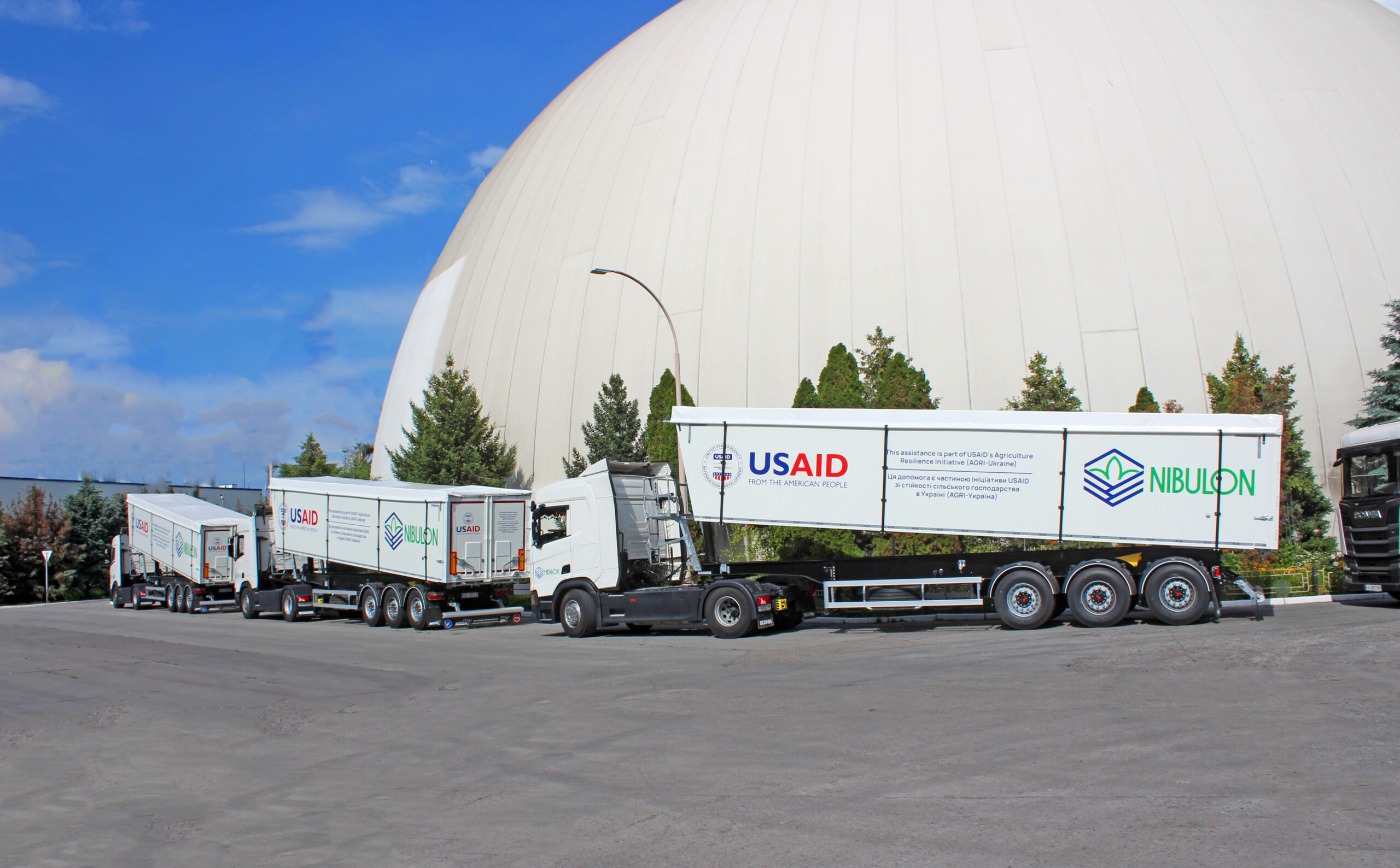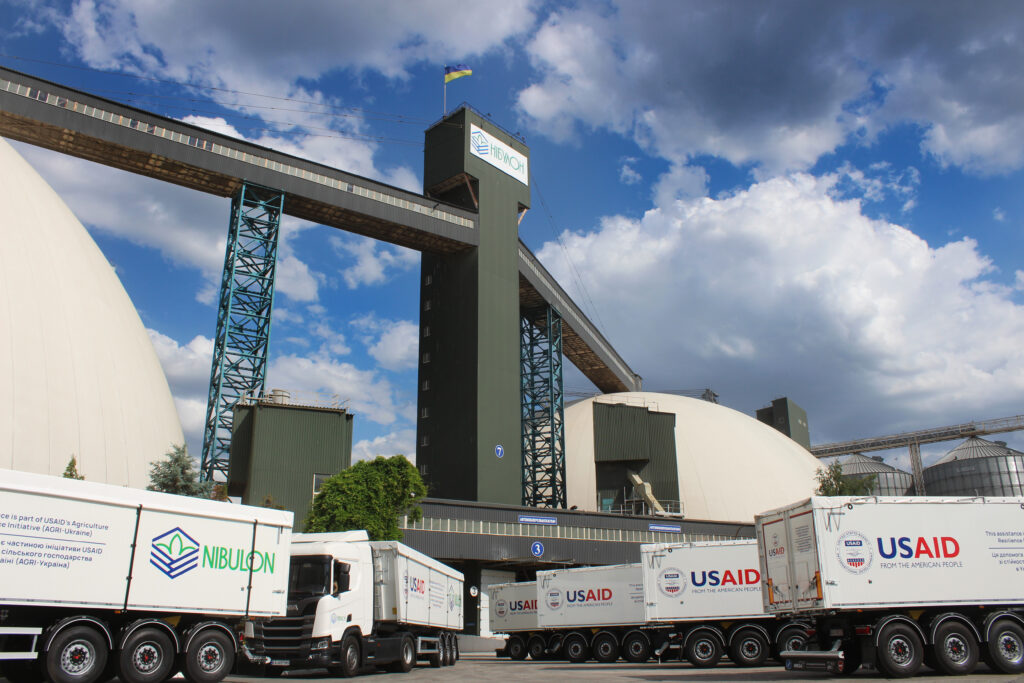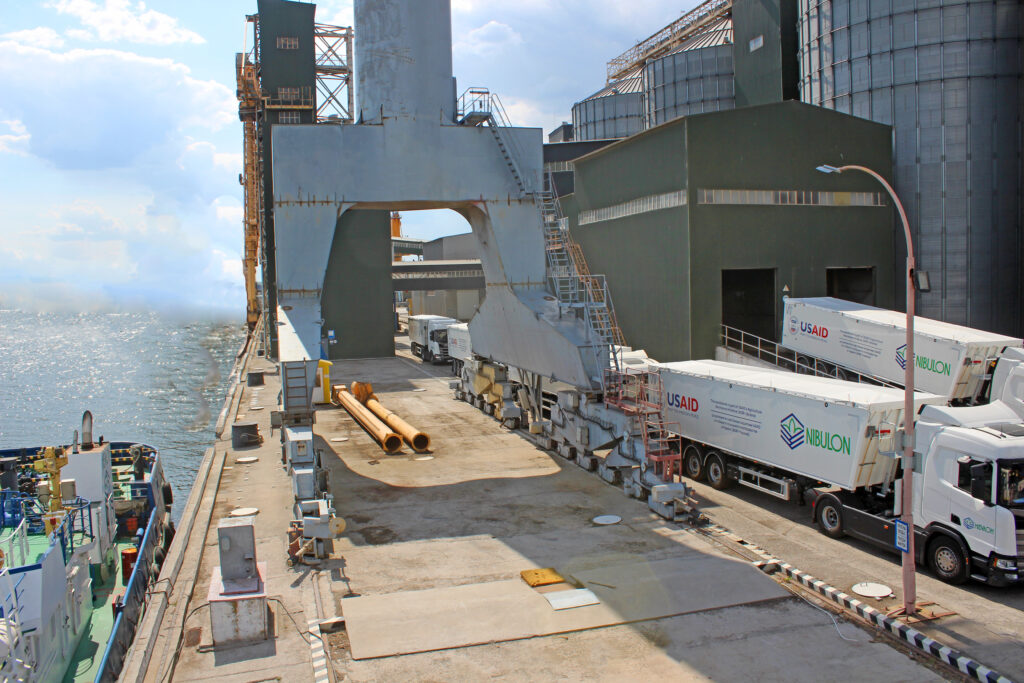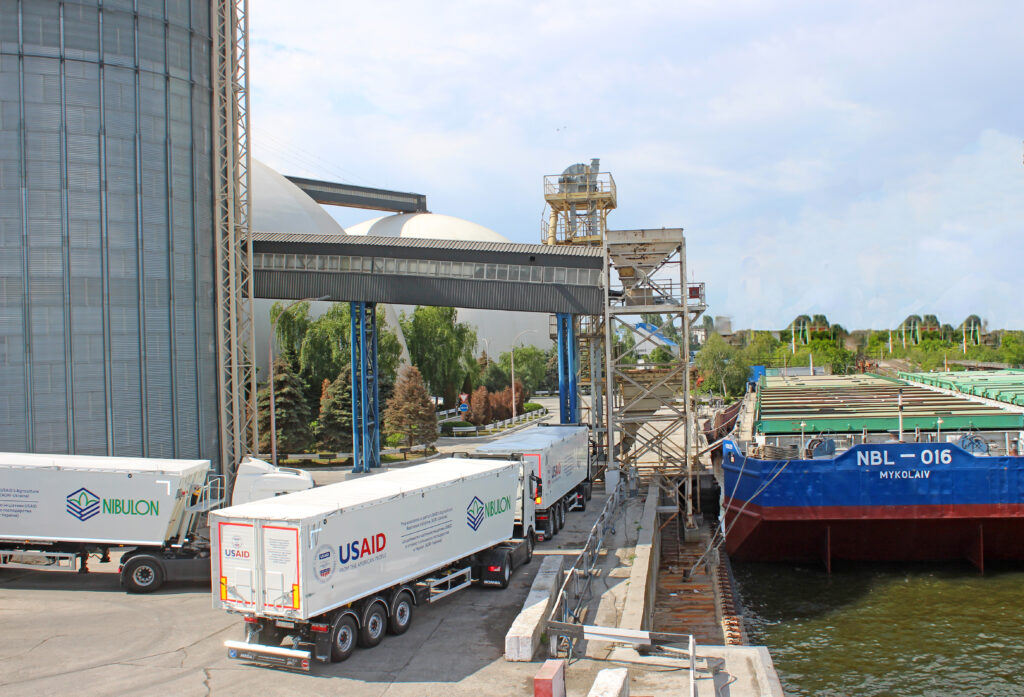Under USAID’s AGRI-Initiative, USAID’s Economic Resilience Activity (ERA) purchased 310 wagons for 9 partners to continue timely delivery of grain to foreign markets.
After Kakhovka dam was destroyed, Nibulon’s 13 ports on the Dnipro and Pivdennyi Buh rivers were blocked. Nibulon turned to land routes to move grain. With 50 USAID-provided wagons holding 70 tons of grain each, Nibulon was able to build new logistics pathways and reduce the cost of transportation, ultimately allowing Nibulon to continue their exports and save almost 600 jobs.
“The wagons received from USAID in August 2023 have already transported 73,000 tons of Ukrainian grain,” said Mykhailo Rizak, Nibulon’s Director for Interaction with Public Authorities. “With this help from international partners, we saved jobs in the blocked river port that were cut off from water logistics.”
ERA partner Eridon received 20 wagons in January 2024 and have already transported more than 10,000 tons of grain.
“Eridon works with more than 12,000 agricultural producers. Previously, Eridon rented wagons, and thanks to this help, it reinvested money in increasing export capacity and paying additional premiums to farmers,” shared Serhii Hrіaznov, Eridon CEO. “Long-term loyal farmers received about UAH 210 (5 USD) extra than the average market price for 1 ton of grain, which is significant financial support for small agricultural producers during a full-scale war.”
Cygnet’s 15 USAID-provided wagons oscillate between their central elevators to Ukrainian Black Sea ports. Cygnet was able to export their 2023 excess harvest to foreign markets and the wagons decreased logistics costs by 11%.
“The new wagons will allow Cygnet to increase transportation savings by up to 40% this season. Currently, the cost of transportation is UAH 530 (12.8 USD) /mt against the commercial market price of UAH 850 (20.5 USD)/mt,” says the Cygnet Group Commercial Director, Natalia Bohdanovych. “It will also make it possible to offer a full service from the elevator to the port at an attractive price, and thereby deliver more Ukrainian grain to foreign markets that need it.”
Twenty-five USAID-provided wagons are enabling Almeida to reduce the costs of wagon rentals and their reliance on third-party providers.
“For our team, getting the new grain wagons was motivating, as we lost a significant portion of our production assets when the full-scale invasion began. We expect the use of railcars to increase total export capacity by 39,000 tons per year,“ explained Director of Almeida Group, Maksym Volchenko “Already in May, we were able to transport more than 2,000 tons of grain for export, and in June this volume reached more than 2,400 tons. We have plans and have begun implementing measures to significantly increase our own fleet of wagons and grain trucks.”
By the end of August 2024, USAID ERA plans to deliver an additional 40 wagons to partners.
Background: Assistance to agricultural producers and infrastructure companies is part of the Agriculture Resilience Initiative (AGRI) – Ukraine, implemented by the United States Agency for International Development (USAID). It aims to help Ukraine increase its capacity to produce, store, transport, and export grain.





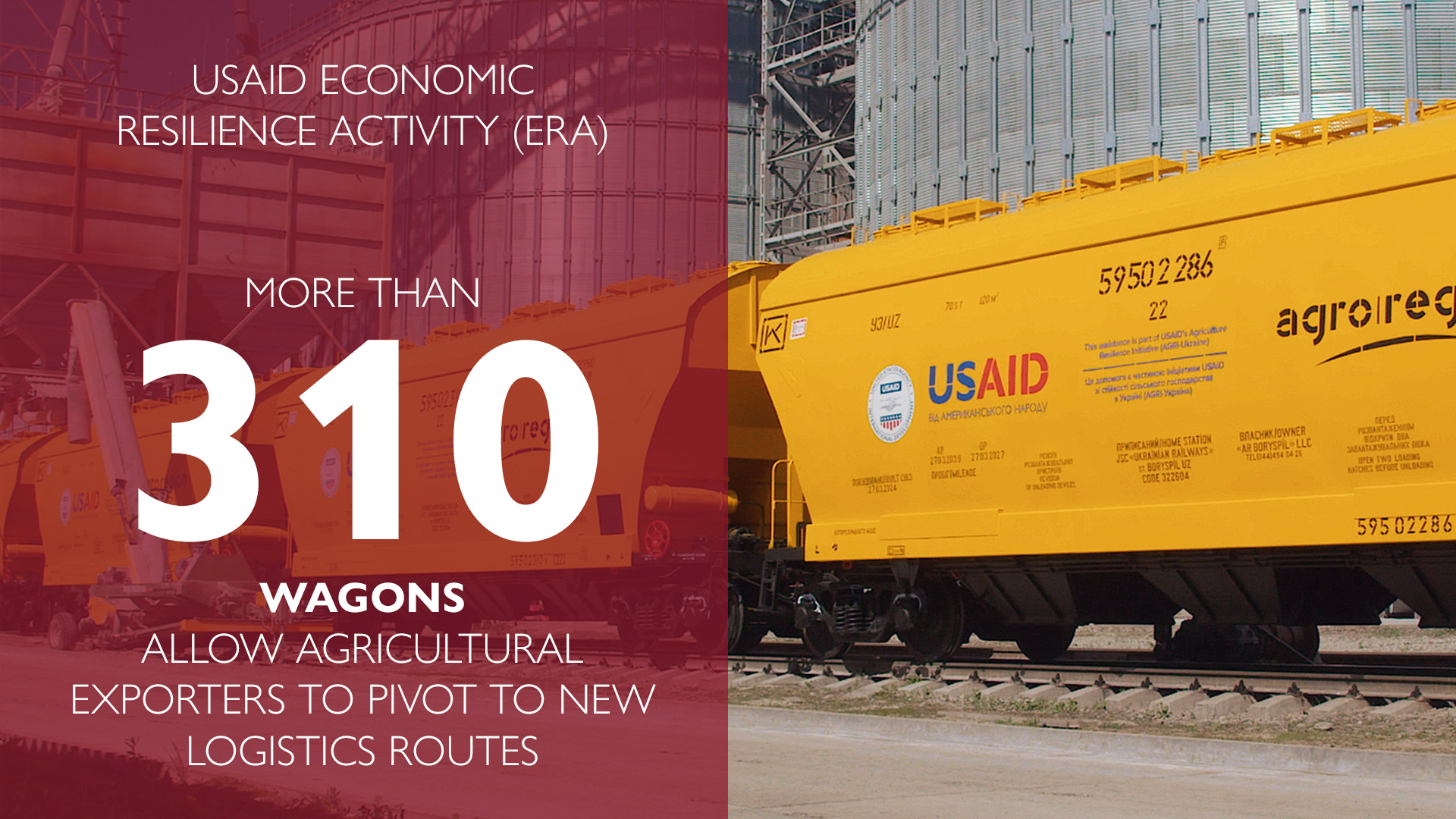
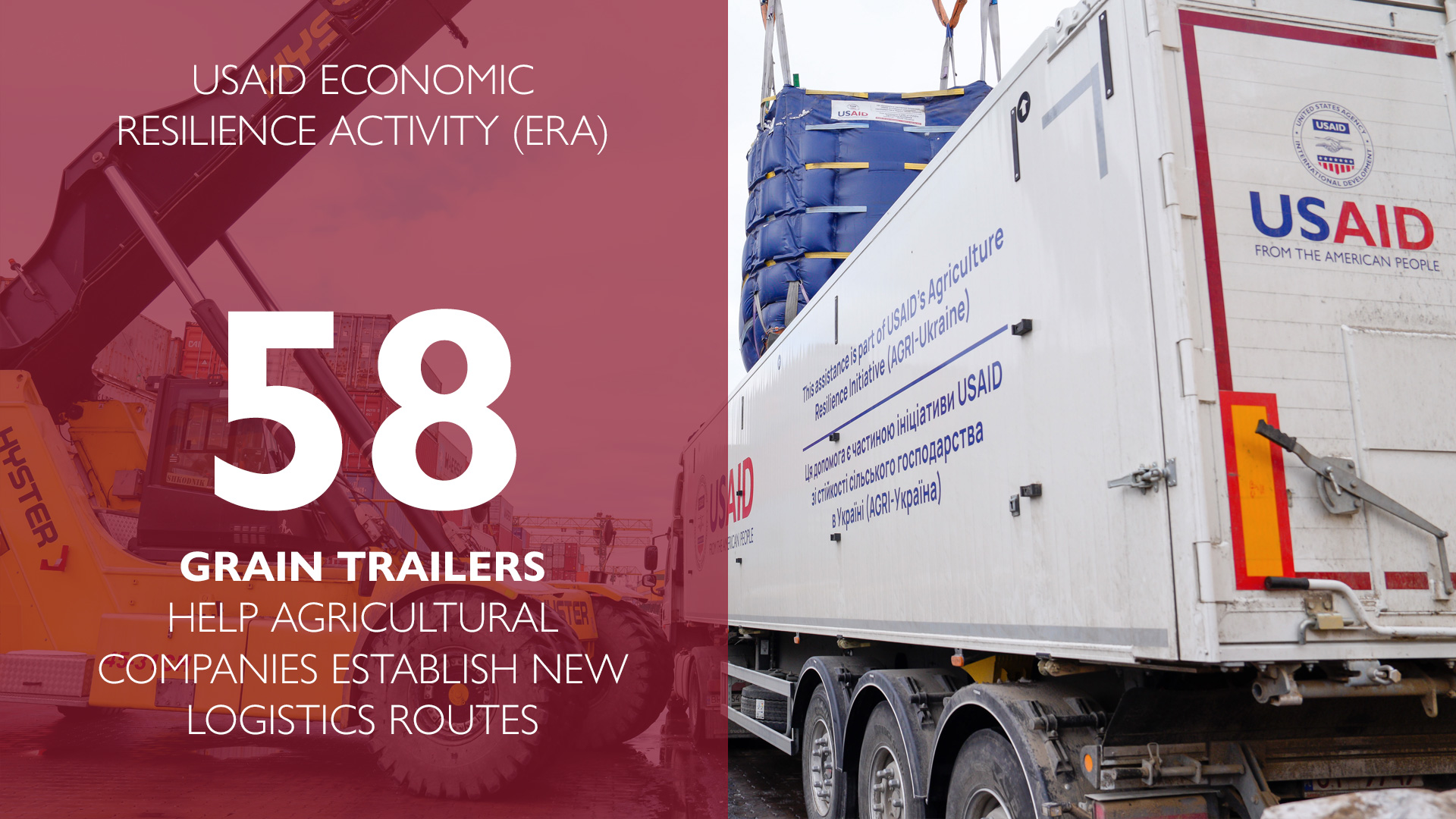
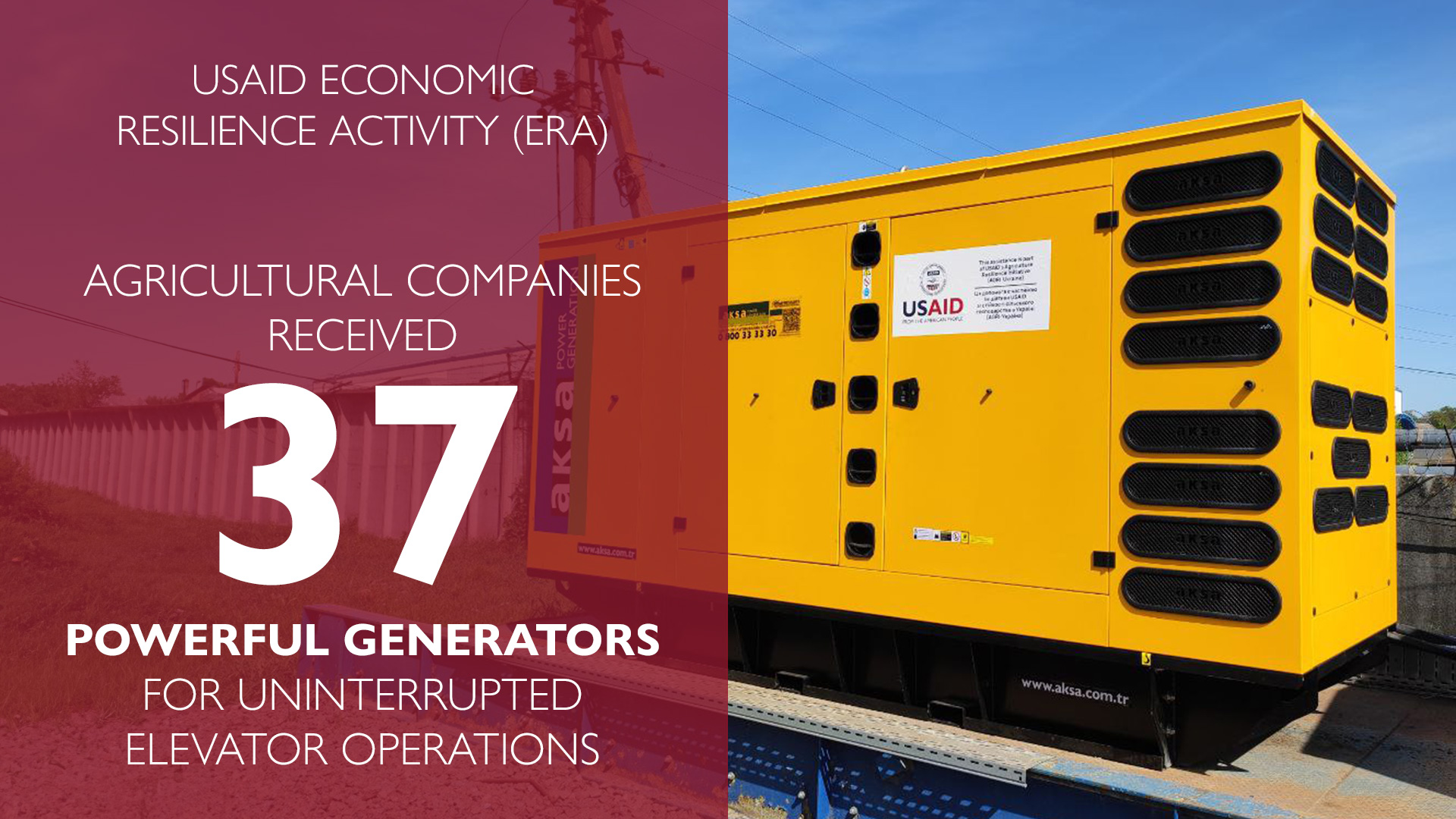

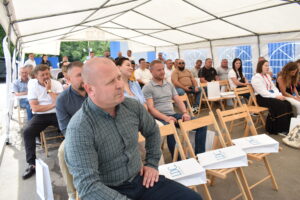
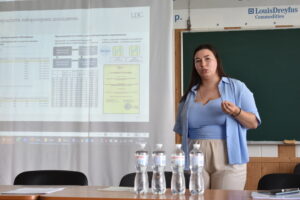
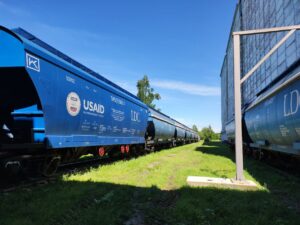 “In May, LDC transported 245,000 tons of grain – 10% by USAID wagons – reducing logistics costs for farmers” says Bohdan Shveda, the Head of the Wholesale Trade Group at LDC Ukraine.
“In May, LDC transported 245,000 tons of grain – 10% by USAID wagons – reducing logistics costs for farmers” says Bohdan Shveda, the Head of the Wholesale Trade Group at LDC Ukraine.